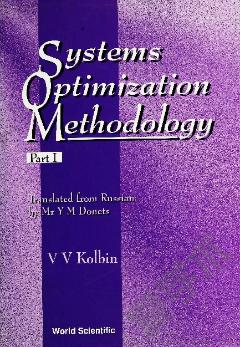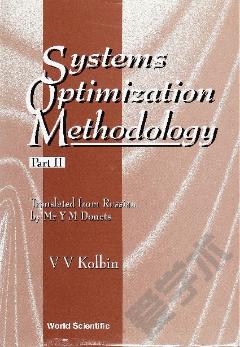Systems Optimization Methodology, Part 1
This monograph defines the notion of a “system” by reference to those systems which exhibit goal-oriented behavior and utilize the notion of decision making and controls. Such systems allow for phenomenological description and fix the nature of causal transformations of input effects into output quantities. The study of consequences of the fact that the systems possess some properties constitutes the content of systems optimization methodology which goes beyond the scope of descriptive classification of systems.Chapter 1 deals with philosophical problems of systems methodology. An attempt is made to systematize and analyze the problems of scientific methodology as applied to systems modeling methodology which is viewed as the most general concept utilized in modern science.Chapter 2 focuses on problems of qualitative analysis in natural and social sciences. Attention is drawn to problems of measurement theory and quantitative analysis of systems.Approaches and methods of systems analysis and synthesis form the central portion of the book. Much study is given to the methods of systems decomposition, an integration using both discrete and continuous descriptions of objects, processes, and phenomena. Examples of complex goal-oriented systems are also provided.The remaining part of the book is largely centered around the methodology of multiobjective systems optimization.
{{comment.content}}








 京公网安备 11010802027623号
京公网安备 11010802027623号